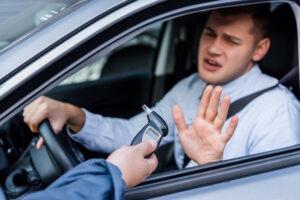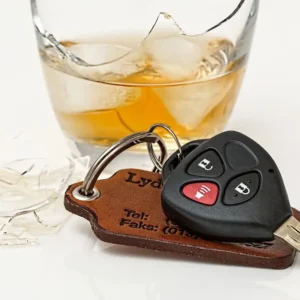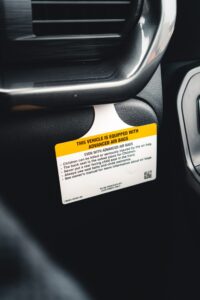
The Legal Alcohol Limit In California
People often underestimate just how drunk they are before going behind the wheel to drive.
While there are over a million DUI convictions reported annually, the Centers for Disease Control and Prevention estimate that this is only a small portion of overall drunk drivers on the road. They contend that most go under the radar, leaving drivers and passengers alike more vulnerable to catastrophic injuries and wrongful deaths than previously thought.
Beyond just the legal repercussions that one may face if found guilty of drunk driving, it’s important to stay away from alcohol if you plan to drive. The National Highway Traffic Safety Administration reports that 37 people die on average due to DUI-related accidents. Unexpected yet preventable deaths like this causes immense trauma to the loved ones of the victims.
Adding on to the fact that this may cause you, the driver, immense guilt that will last a lifetime, it’s best if you abstain from alcohol altogether before driving.
But in the eyes of the law, what constitutes “drunk driving?”
This is all dependent on your blood alcohol concentration or BAC. This is typically measured using a breathalyzer, but there are other devices proper authorities can use to measure how much alcohol is in a person’s bloodstream as well.
Failure to test will lead to additional legal sanctions. Keep this in mind if you feel the urge to refuse to comply with the request of the police.
What is the alcohol limit in California?
The Blood Alcohol Concentration (BAC) is the amount (%) of alcohol in a person’s bloodstream. In the event that the proper authorities suspect you of driving under the influence, they will measure your blood alcohol concentration to determine whether or not you were inebriated behind the wheel.
There are, however, different standards that people of different ages are beholden to. For example, if you’re under 21 years old —below drinking age— then you will be subject to tighter restrictions:
For one, you will be “drunk driving” if you have a blood alcohol concentration exceeding 0.01%. They will then suspend your license for a year and fine you $100. In all likelihood, this will cause your insurance premium to go up astronomically as well.
The restrictions on drunk driving aren’t significantly better for those of drinking age although they are technically subject to “looser” regulations.
As opposed to their younger counterpart’s 0.01%, they will be considered drunk driving if their BAC exceeds 0.08%. They will also get their license suspended only for four months if they’re first time offenders in contrast to the one year suspension of first time offenders under 21.
Overview on the CA legal alcohol limit:
Restrictions for people below drinking age (under 21 years old)
- Those with a BAC of 0.01% and above are legally deemed to be drunk driving.
- First DUI offense: one year license suspension
- To get your license back, you will need to pay a fine of $100 and proof of financial responsibility (insurance)
Restrictions for people 21 years old or older
- Those with a BAC of 0.08% and above are legally deemed to be drunk driving
- First DUI Offense: 4-month license suspension
- To get your license back, you will need to pay a fine of $125 and proof of financial responsibility (insurance)
Factors Affecting BAC
There are several factors that may affect your blood alcohol concentration. Here are a few to consider:
- How much alcohol you’ve taken: As a general rule of thumb, the more alcohol you take, the higher your blood alcohol concentration may be. So if you plan on driving home from a function where alcohol is present, make sure that you’re not drinking —or at the very least— refrain from ingesting too much alcohol.
- How much you weigh: Generally speaking, people who weigh relatively lightly may feel the effects of alcohol faster than those who are heavier. This is because alcohol gets diluted in a larger body volume, so they end up not feeling as inebriated.
- How much food you’ve eaten: You will feel the effects of alcohol at a much slower rate when you’ve eaten food prior to drinking. This is because the food acts as a physical barrier in your stomach. So when you drink, the passage of alcohol in your small intestines will be slower —effectively lowering your BAC.
- How strong the alcohol is: Lastly, how much alcohol (%) is in your drink will affect how drunk you’d get. This may seem intuitive to some people, however, people forget this principle when they’re faced with a myriad of drinking options. Some think that as long as they’re not drinking “too much,” then they should be good. However, some drinks are stronger than others.
So keep this in mind before drinking whatever is in that red cup your friend has handed you.
Call Omega Law Group
The legal team at Omega Law Group consists of highly skilled and experienced individuals who have had a hand at accruing over millions of dollars on behalf of their clients. At Omega Law, they recognize that each client is bogged down with unique circumstances, and so they personalize their legal service to cater to their individual needs.
Their technical legal savvy on top of their genuine concern for their wellbeing have led the firm to win numerous awards from industry-vetted organizations including SuperLawyers.com and Best Lawyers. Furthermore, they’ve been recognized by prestigious publications —namely the Los Angeles Times and the Los Angeles Business Journal.
On top of making headlines at the Business Journal for their innovative integration of A.I. technology in their case processes, they’ve also been hailed as one of the “Most Admired Firms.”
They remain steadfast in their goal to help everyone regardless of their financial circumstances. Which is why they insist on operating a contingency fee basis. This allows clients to acquire quality legal services without having the burden of an upfront legal fee. Schedule a free consultation now to learn more!




